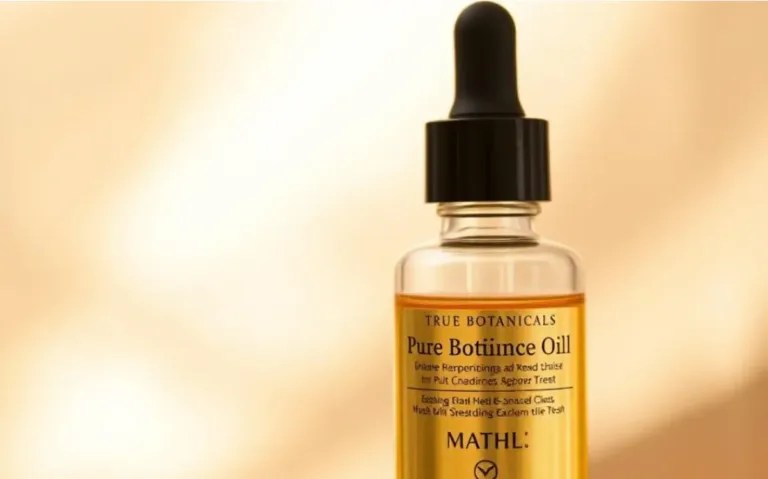4 Incredible Benefits of Donkey Milk for Skin: How It Works and How to Use It Effectively
In today’s world, the quest for natural skincare ingredients has led to a fascinating resurgence of ancient remedies, with donkey milk stealing the spotlight. Revered since the time of Cleopatra, donkey milk offers a blend of vitamins, minerals, and fatty acids that can transform your skincare routine.
Known for its remarkable hydrating properties, it attracts and retains moisture, making it an exceptional choice for soft, supple skin. The proteins in donkey milk also support skin barrier repair and renewal, protecting against environmental stressors. However, it’s essential to be aware of potential downsides, such as allergies or ethical concerns. Stay tuned to uncover how to harness the many benefits of donkey milk for skin.
Overview of the Benefits of Donkey Milk for Skin
Donkey milk, a somewhat unconventional but highly effective ingredient, has been making waves in the skincare world. Revered for its unique composition and historical significance, it has been used for centuries to achieve beautiful, radiant skin. Let’s explore how ancient civilizations and its rich nutritional profile have contributed to its current popularity.
Historical Significance
Throughout history, donkey milk has been cherished by notable figures for its skincare benefits. Cleopatra, the legendary queen of Egypt, was known to bathe in donkey milk to maintain her famed beauty and youthful skin. It’s said she maintained a herd of over 700 donkeys just for this purpose.
Hippocrates, the father of modern medicine, also praised donkey milk for its medicinal properties. He recommended it for various ailments, including infections, poisoning, and even joint pain. This ancient wisdom has now trickled into modern skincare routines, bringing the old-world magic of donkey milk to contemporary beauty enthusiasts.
For more on the fascinating history of donkey milk, you can look at this article or this page.
Nutritional Composition
What makes donkey milk so beneficial for the skin? Its power lies in its rich nutritional composition. Donkey milk is packed with essential vitamins, fatty acids, proteins, and minerals that collectively work wonders for your skin. Here’s a closer look:
- Vitamins: Donkey milk boasts a comprehensive vitamin profile, including A, B, C, D, and E. Each of these vitamins plays a crucial role in skin health. Vitamin A helps reduce wrinkles and fine lines, vitamin C boosts collagen production, and vitamin E provides antioxidant protection.
- Fatty Acids: Essential fatty acids in donkey milk, such as omega-3 and omega-6, help maintain the skin’s lipid barrier, ensuring it stays hydrated and protected from environmental damage.
- Proteins: Proteins in donkey milk, like whey and casein, contribute to skin cell regeneration and repair. They can help soothe irritated skin and support its healing process.
- Minerals: Essential minerals such as calcium, magnesium, and phosphorus in donkey milk are vital for maintaining skin structure and function. They aid in detoxification and rejuvenation processes, giving skin a fresh and revitalized appearance.
For a detailed breakdown of its nutritional components, refer to this study or this research.
Understanding the historical use and nutritional richness of donkey milk provides a solid foundation for appreciating its skin benefits, which we will explore further in upcoming sections.
Photo by Monstera Production 
Stay tuned to dive deeper into how this ancient beauty secret works its magic on modern skin.
Benefits of Donkey Milk for the Skin
Donkey milk, often considered a luxurious and rare skincare ingredient, offers numerous benefits for achieving flawless skin. Let’s take a closer look at how this amazing ingredient can enhance your skincare routine.
Hydration and Moisturization
Donkey milk is rich in proteins that attract and retain water, which makes it a powerful hydrating and moisturizing agent. These proteins form a protective barrier on the skin, preventing moisture loss and keeping the skin soft and supple.
When your skin’s natural moisture barrier is strong, it can better shield against environmental pollutants and harsh weather conditions. Plus, using products with donkey milk can help in achieving that dewy, plump look everyone desires. If you’re curious to explore more, WebMD discusses the hydrating properties of donkey milk.
Anti-Aging Properties
Donkey milk contains essential fatty acids like omega-3 and omega-6, which play a significant role in reducing signs of aging. These fatty acids help maintain the skin’s elasticity, reducing the appearance of fine lines and wrinkles. They also support cell membrane integrity, which is crucial for skin repair and regeneration.
Applying skincare products infused with donkey milk can help you maintain a youthful appearance. Their anti-aging effects are complemented by other nutrients that boost collagen production and skin elasticity. For more insights, this study highlights the anti-aging potential of donkey milk.
Soothing and Healing Effects
One of the most impressive benefits of donkey milk is its ability to soothe and heal irritated skin. It contains natural anti-inflammatory agents that calm redness and irritation, making it ideal for people with sensitive skin or conditions like eczema and rosacea.
Studies have shown that it can encourage skin cell renewal, helping to repair damaged skin and promote a clearer complexion. The soothing properties also make it a great choice for those dealing with acne or other inflammatory skin issues. Mindbodygreen explains further on how donkey milk soothes and heals effects.
Antioxidant Protection
Donkey milk is a treasure trove of antioxidants, which help protect the skin from damage caused by free radicals. These antioxidants, such as vitamins A, C, and E, neutralize harmful molecules and prevent oxidative stress, which can lead to premature aging and skin damage.
By incorporating donkey milk into your skincare routine, you can provide a protective shield against environmental aggressors like UV rays and pollution. An excellent source more on this can be found in Healthline’s article on the benefits and uses of donkey milk.
Photo by Vilvah Store 
Stay tuned to learn more about how to use donkey milk effectively and other vital information for skincare enthusiasts.
How Donkey Milk Works to Improve Skin
Donkey milk is a remarkable natural ingredient that offers various benefits for the skin. This section will explain the role of proteins, amino acids, and fatty acids in donkey milk and how they improve skin health.
Role of Proteins and Amino Acids
Donkey milk is rich in proteins and amino acids, which are crucial for maintaining healthy skin. Here’s how they work:
- Proteins: The proteins in donkey milk, such as whey and casein, help with skin cell regeneration and repair. They are essential for soothing irritated skin and supporting its healing process. These proteins also aid in creating a protective barrier that locks moisture in, keeping the skin hydrated and supple. This is particularly beneficial for people with dry or sensitive skin.
- Amino Acids: Amino acids are the building blocks of proteins and play a significant role in skin health. Donkey milk contains essential amino acids like lysine, proline, and arginine. These compounds are vital for collagen production, which helps in maintaining the skin’s elasticity and firmness. Collagen is like the scaffold of your skin; without it, skin would lose its structure and sag.
For a deeper dive into how these components work, you can check out this article on amino acids in donkey milk and this study.
 Photo by cottonbro studio
Photo by cottonbro studio
Fatty Acids and Skin Barrier
Fatty acids in donkey milk, such as omega-3 and omega-6, are essential for maintaining a healthy skin barrier. Here’s why they matter:
- Maintaining Hydration: Fatty acids help to strengthen the skin’s lipid barrier, which is crucial for retaining moisture and preventing water loss. A strong lipid barrier keeps your skin hydrated, soft, and less prone to dry patches and irritation. Think of the lipid barrier as a protective coat for your skin, ensuring that it remains plump and moisturized even in harsh weather conditions.
- Repairing Damage: Beyond hydration, essential fatty acids also play a role in repairing the skin barrier. Environmental factors like UV rays, pollution, and harsh skincare products can damage this barrier, leading to issues like dryness, redness, and sensitivity. The omega fatty acids in donkey milk help to rebuild this barrier, maintaining overall skin health.
For more information on the importance of fatty acids in skin health, refer to this article on skin barrier function and this study on dietary interventions for skin health.
Understanding these components helps to appreciate how donkey milk works to enhance skin health. It not only hydrates but also repairs and protects your skin, making it an excellent addition to your skincare routine. Stay tuned as we explore more benefits and ways to effectively use donkey milk in the following sections.
How to Use Donkey Milk Effectively
Incorporating donkey milk into your skincare routine can provide numerous benefits, but understanding how to use it effectively is key. Let’s explore the different types of donkey milk products available and some tips on how to apply them for the best results.
Types of Donkey Milk Products
Donkey milk is a versatile ingredient found in various skincare products. Here are some popular forms:
- Creams Donkey milk is often used in facial creams and moisturizers due to its rich hydrating and anti-aging properties. These creams can help with collagen production and skin elasticity. Explore some options to find one that suits your skin type.
- Lotions Body lotions containing donkey milk are excellent for overall skin hydration and soothing irritated skin. They are usually lighter than creams, making them perfect for daily use. For instance, this body lotion offers both hydration and anti-aging benefits.
- Soaps Donkey milk soaps are ideal for gentle cleansing. These soaps not only clean the skin but also provide moisturization, making them suitable for sensitive or dry skin. Check out these soap options.
 Photo by Vika Glitter
Photo by Vika Glitter
Application Tips
To maximize the benefits of donkey milk skincare products, follow these tips:
- Cleanse First Always start with clean skin. Use a gentle cleanser that contains donkey milk, like the Donkey Milk Chamomile Facial Cleanser. Clean skin allows for better absorption of the beneficial ingredients.
- Apply Consistently Consistency is key. Apply donkey milk creams or lotions twice daily, in the morning and at night, to maintain hydration and benefits. For instance, using this donkey cream can help you achieve brighter, hydrated skin with fewer fine lines.
- Combine with Other Steps Integrate donkey milk products with other steps in your skincare routine. After cleansing, apply a donkey milk-based serum or cream, followed by sunscreen during the day. Donkey milk works well with other skincare ingredients like hyaluronic acid and niacinamide.
- Patch Test If you are using donkey milk products for the first time, it’s wise to do a patch test. Apply a small amount on a discreet area and wait 24 hours to ensure you don’t have an allergic reaction.
By understanding the types of donkey milk products and following these application tips, you can effectively incorporate this luxurious ingredient into your skincare routine. Stay tuned to learn more about the potential downsides and other essential information for skincare enthusiasts.
Potential Downsides of Donkey Milk
While donkey milk brings numerous benefits to the skin, it is essential to be aware of potential downsides. This section delves into possible allergic reactions and sustainability issues that skincare enthusiasts should consider.
 Photo by cheryl brigham
Photo by cheryl brigham
Allergic Reactions
Although donkey milk is often praised for its hypoallergenic properties, there is still a possibility of allergic reactions. Some individuals may experience symptoms such as hives, itching, or even respiratory issues after using products that contain donkey milk.
To ensure the safe use of donkey milk skincare products, it’s advisable to perform a patch test:
- Apply a small amount of the product on a discreet area of your skin, like the inner arm.
- Wait 24 hours to see if any adverse reactions occur, such as redness, itching, or swelling.
- Consult a dermatologist if you have a history of sensitive skin or allergies before introducing new skincare products into your routine.
For more detailed information on the potential allergic reactions to donkey milk, you can refer to this article.
Sustainability Issues
Sustainability and ethical sourcing are growing concerns as the demand for donkey milk increases. Producing donkey milk sustainably poses several challenges:
- Animal Welfare: Ensuring that donkeys are treated humanely during milk production is crucial. Over-milking can lead to health issues for the animals.
- Environmental Impact: The environmental footprint of donkey farming, including land use and water consumption, needs to be considered. Sustainable practices must be adopted to minimize these impacts.
- Supply Chain Transparency: Consumers should be aware of where and how the donkey milk in their products is sourced. Ethical sourcing and transparent supply chains are vital for sustainable production.
For more insights into the sustainability issues surrounding donkey milk, check out this study which assesses the environmental impact of donkey milk production.
By being aware of these potential downsides, skincare enthusiasts can make more informed choices about integrating donkey milk into their routine. Stay tuned as we explore more facets of this ancient beauty secret.
Additional Information for Skincare Enthusiasts
Donkey milk is a versatile ingredient that offers numerous benefits for the skin. For skincare enthusiasts looking to maximize its potential, here are some additional tips and tricks to consider.
Combining with Other Skincare Ingredients
When integrating donkey milk into your skincare routine, it’s essential to know which other ingredients complement or conflict with it for optimal results. Here are some tips:
- Works Well With:
- Vitamin C: Combining donkey milk with vitamin C can enhance its brightening and anti-aging effects. Vitamin C is known for its ability to boost collagen production and reduce pigmentation, making it an excellent partner for donkey milk. Learn more about combining donkey milk and vitamin C.
- Hyaluronic Acid: Both donkey milk and hyaluronic acid are powerful hydrators. Using them together can help keep your skin plump and moisturized. Hyaluronic acid also aids in better absorption of other ingredients, making your skincare routine more effective.
- Aloe Vera: Aloe Vera’s soothing properties complement the healing effects of donkey milk, making this combination ideal for sensitive or inflamed skin. They work together to calm irritation and provide deep hydration. Explore the benefits of combined donkey milk and aloe.
- Avoid Combining With:
- High Concentrations of Retinoids: While moderate use of retinoids can be beneficial, combining donkey milk with high concentrations of retinoids can cause irritation, especially for those with sensitive skin.
- Strong Acids (e.g., Glycolic Acid): Strong acids can compromise the hydrating and soothing properties of donkey milk. If you use acid-based exfoliants, it’s best to use them sparingly and avoid simultaneous application with donkey milk products.
DIY Donkey Milk Skincare Recipes
For those who enjoy crafting their own skincare products, here are some simple and effective DIY recipes using donkey milk.
DIY Donkey Milk Soap
Creating your own moisturizing donkey milk soap is a rewarding and straightforward process. Here’s a basic recipe:
Ingredients:
- 500g of donkey milk soap base
- 2 tablespoons of almond oil
- Essential oils of your choice (e.g., lavender or chamomile)
- Soap molds
Instructions:
- Melt the donkey milk soap base in a double boiler.
- Once melted, stir in the almond oil and a few drops of your favorite essential oils.
- Pour the mixture into soap molds and let it cool completely.
- Once hardened, remove the soap from the molds and enjoy your homemade moisturizing soap!
Learn more about making donkey milk soap.
DIY Donkey Milk Bath Bombs
Donkey milk bath bombs can turn an ordinary bath into a luxurious skincare treatment. Here’s a simple recipe:
Ingredients:
- 1 cup baking soda
- 1/2 cup citric acid
- 1/2 cup cornstarch
- 1/2 cup Epsom salt
- 2-6 tsp organic freeze-dried donkey milk
- 2 tsp essential oils (e.g., lavender, rose)
- A few drops of food coloring (optional)
- Water in a spray bottle
Instructions:
- Mix the dry ingredients (baking soda, citric acid, cornstarch, Epsom salt, and donkey milk) in a large bowl.
- Add the essential oils and food coloring, if using.
- Slowly spritz the mixture with water until it holds together when pressed (be careful as too much water can cause the mixture to fizz prematurely).
- Press the mixture into molds and let it dry overnight.
- Once dry, remove the bath bombs from the molds and store them in an airtight container.
Check out more on DIY donkey milk bath bombs.
 Photo by Vika Yagupa
Photo by Vika Yagupa
By combining donkey milk with the right ingredients and experimenting with DIY recipes, skincare enthusiasts can create personalized treatments that offer both luxury and efficacy. Stay tuned for more tips and insights on harnessing the power of this ancient beauty secret.
Get the FREE Recipe Card Download
Conclusion
Donkey milk, celebrated for its rich blend of vitamins, minerals, fatty acids, and proteins, offers a multitude of benefits for the skin. It improves hydration, supports anti-aging, soothes irritation, and provides antioxidant protection. Utilizing products like creams, lotions, and soaps ensures effective integration into your skincare routine.
However, it’s essential to consider potential allergic reactions and sustainability issues. Patch tests are advisable to rule out allergies, and opting for ethically sourced products supports animal welfare and environmental health.
With its historical significance and scientifically backed benefits, donkey milk stands out as a potent ingredient for achieving radiant, healthy skin. Embrace this ancient beauty secret to enhance your skincare regimen.






